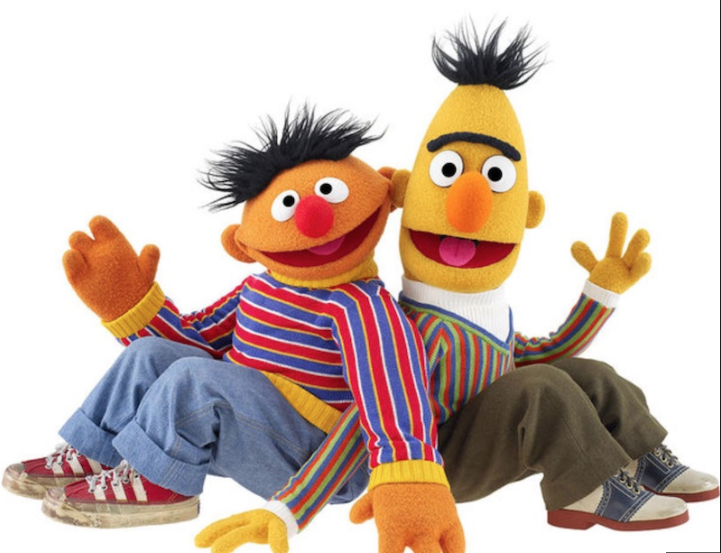Responsible reading: don’t stop at the headline
4 min read
Bert and Ernie from Sesame Street. (https://www.pedestrian.tv/)
By GINNY BIXBY
Associate Editor
“Bert and Ernie are gay lovers,” a New York Post headline reported on Tuesday night.
“Bert and Ernie are just friends,” CNN said in a news headline published the same evening.
And thus began the battle of the headlines to define the relationship status of two puppets.
There has been speculation as to the characters’ potential love affair for years. In 2011, a petition on Change.org to “Let Bert and Ernie Get Married On Sesame Street” garnered over ten thousand signatures. And in 2013, they were depicted as a couple on the cover of the New Yorker in response to the Supreme Court decision to legalize same-sex marriage. Sesame Workshop, the production organization behind the show, denied that Bert and Ernie were anything more than friends.
But controversy was stirred up again when former Sesame Street writer Mark Saltzman said in an interview published in Queerty on Sunday that he modeled the relationship between Bert and Ernie after the relationship between his male partner and himself. “…I always felt that without a huge agenda, when I was writing Bert & Ernie, they were [a couple],” said Saltzman.

However, Sesame Workshop disagreed with this take. “As we have always said, Bert and Ernie are best friends,” Sesame Workshop said in a statement made via Twitter on Tuesday. “They were created to teach preschoolers that people can be good friends with those who are very different from themselves. Even though they are identified as male characters and possess many human traits and characteristics (as most Sesame Street Muppets™ do), they remain puppets, and do not have a sexual orientation.” This tweet has since been deleted.
Additionally, in an interview with the New York Times, Saltzman said that his comments were misinterpreted and that Bert and Ernie are not necessarily gay but “two guys who love each other” and that “it’s like poetry. It’s what you need it to be,” further confusing the debate.
But arguably the larger issue with this story is not about whether or not two puppets are in love. It is in the stark difference in how it has been reported by different media outlets, particularly in the headlines. The headlines pouring out of hundreds of news outlets about this story did not provide a clear consensus.
While every journalist would like to believe that every reader actually reads the entire article they’ve poured their blood, sweat, and tears into, the sad reality is that in the digital age, a lot of people consume their media through Facebook and Twitter, and often don’t click past the headline. Thus, the art of headline writing has become a whole different beast.
Usually, writers don’t even write their own headlines. Typically an editor writes them, and occasionally the writer gets some input. The issue with this is that readers who are unfamiliar with the journalistic editing process are often either quick to attack the writer for a headline that isn’t working or accurate, or, conversely take the headline as gospel and disregard the content of the article.
The question is, should outlets be responsible for the fact that readers may not look past the headline? Yes and no. Headline writers do have a special level of power that nobody else involved in the story has. The person who writes that headline can decide if they want the person who sees it to think that Bert and Ernie are a couple or not.
While this may be a silly fluff piece in the eyes of some, the same level of headline power is there as it is with any “important” story, such as a report involving the President or an investigation into sexual assault in the Catholic Church. The frightening thing is that the outlets publishing these perfunctory headlines wouldn’t be considered “fake news” by most, so these mostly respectable publications are shooting themselves in the foot by using clickbait and yellow journalism.
So what makes a good headline? In this case, NPR got it right in their online headline: “Former Writer Saw Bert And Ernie As ‘Loving Couple’; Sesame Workshop Disagrees”. It’s simple, and it tells you everything. NPR was one of the few outlets that was clear-cut in their reporting of this debate.
However, this isn’t just on the headline writers. Arguably, it’s the fault of the readers, who should be more responsible in their media consumption. If readers were more educated as to how the publication process works, perhaps they wouldn’t be jumping to conclusions. Never stop at the headline. Don’t look solely to social media for your news. Analyze several sources.
But of course, Bert and Ernie are a couple. The New Yorker said so long ago, after all.


